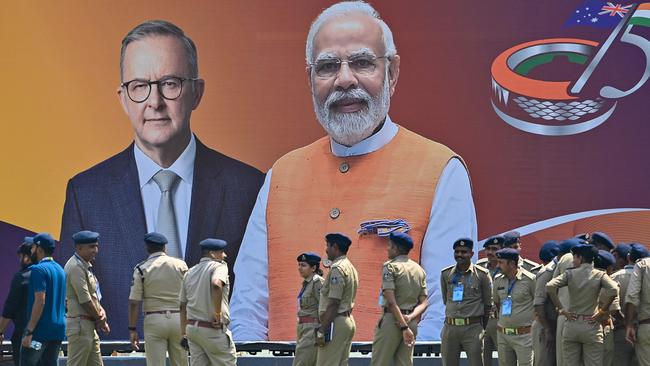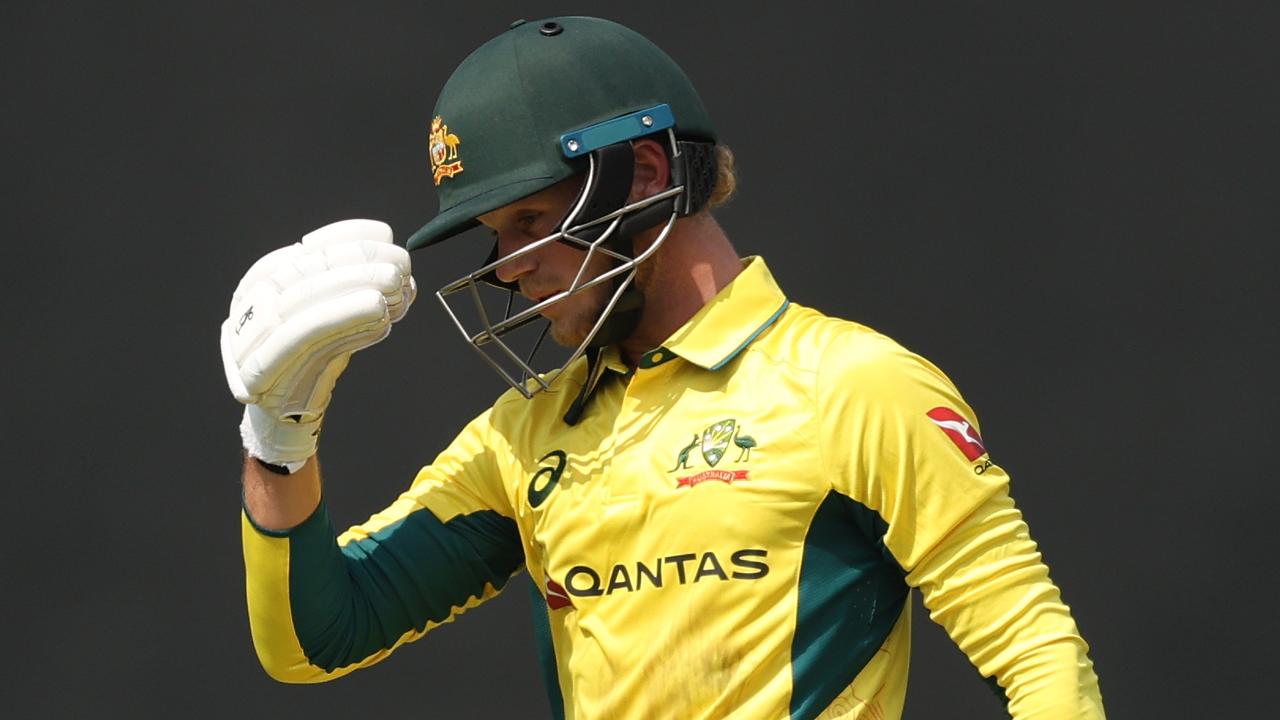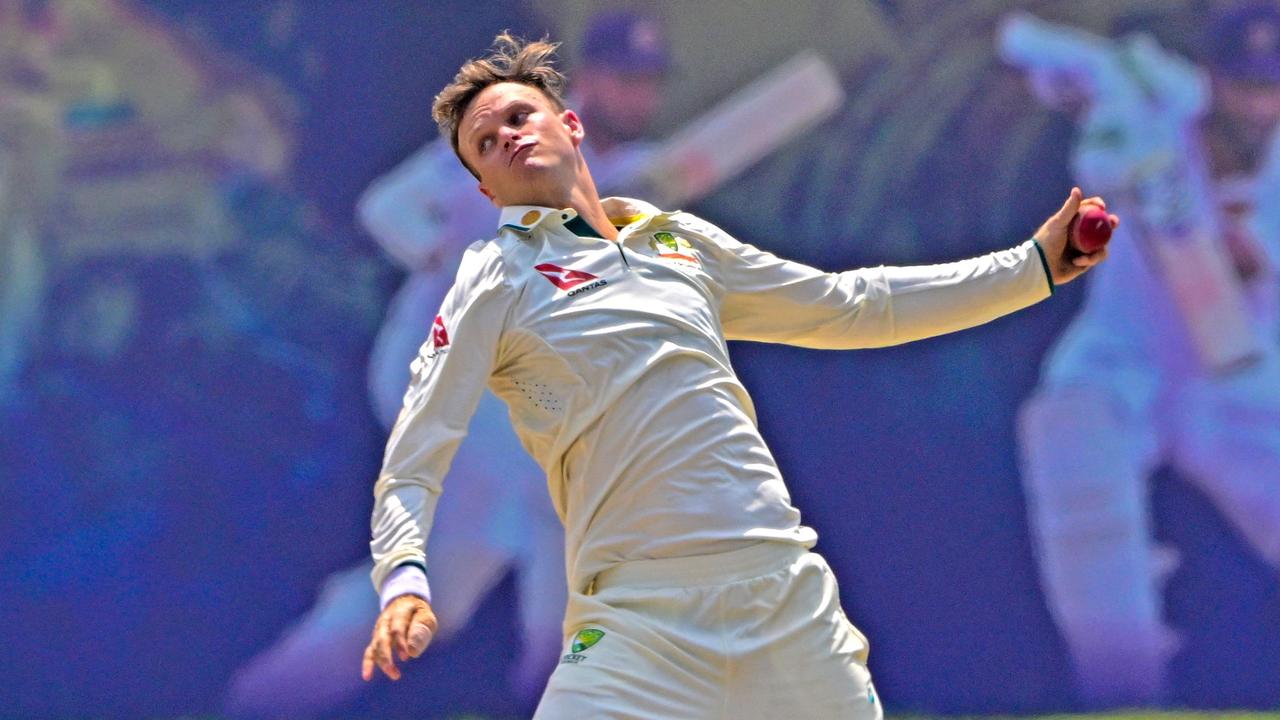Cricket’s Modi question: why are we tolerating the intolerant?

India’s Gujurat being a dry state, you won’t be able to avail yourself of a beer at the fourth Test in Ahmedabad. But if you like your cricket with a side serve of fascistic ostentation, the climax of the Border-Gavaskar Trophy in Ahmedabad will be right up your alley.
The first day will at least begin as a cricket match within a political rally, India’s Prime Minister Narendra Modi felicitating himself at the gargantuan stadium bearing his name as his Australian counterpart Anthony Albanese looks on, its first political visitor since Donald Trump, with that faintly queasy politeness that these days passes for diplomacy.
The players will be introduced by their respective prime ministers. To ensure a suitably ecstatic throng, the bulk of the tickets were “set aside” in advance for “local families and students” by the Board of Control for Cricket in India, in its role as propaganda wing of Modi’s Bharatiya Janata Party, and the Gujarat Cricket Association, where Modi was president during his long, chilling and viciously sectarian rule as the state’s chief minister.
Before one of the world’s great authoritarians will be paraded Steve Smith’s Australians.
Usman Khawaja will be required to shake the hand of the man in charge of the city when, 21 years ago, hundreds of his co-religionists were slaughtered and tens of thousands displaced in the pogroms following the Godhra train burning while security forces remained mysteriously inactive. Strange that in Australia there’s all that sensitivity to Khawaja being anyway near a can of VB, but here nobody’s fussed about his being placed in uncomfortable proximity to a political leader whose whole career has been characterised by demonising and disenfranchising India’s Muslims.
Hey, look, I get it: the idea of “friendship through cricket” holds enormous appeal. When Indian and Australian teams take the field, there’s something powerful and inspiriting about their heritage as representatives of colonised lands who took to and mastered an English game, in their similarities and their differences. And Modi Stadium, awe-inspiring in its Legoland brutalism, has in prospect a match worthy of its extraordinary dimensions.
This is also an area in which cricket and politics blend as a matter of course. It was a Gujarati, the off-spinner Jasu Patel, who with 14 for 124 engineered India’s first Test win against Australia in 1960.
It was a Gujarati, India’s first home minister Sardar Patel, for whom was named Ahmedabad’s first stadium to host a Test.
But there’s an irony to this. It was Patel, a partner of Gandhi’s in the Indian freedom struggle, who temporarily banned the Rashtriya Swayamsevak Sangh – the Hindu nationalist paramilitaries from which had emerged Gandhi’s assassin, and from which would emerge the BJP. Today India’s home minister is the unappetising Amit Shah, who like Modi started his career in the RSS’s youth wing, who became Modi’s closest political confidante and successor as president of the Gujarat Cricket Association, and whose son Jay is secretary of the BCCI and cricket’s number one nepo baby.
It’s all very cosy, not to say incestuous. Jay, for example, has appointed a septuagenarian Gujarati policeman to run the BCCI’s anti-corruption unit, while the GCA is run by the Ambani group executive who helped organise Trump’s bizarre 2020 visit (where Trump expressed pleasure at visiting “Ahda-bard” and admiration for “Soo-chin Tendul-kerr”). Passing through the atrium of Modi Stadium, one gazes up at giant images of Modi and Shah, in their familiar double act as narcissist and enabler. They are quite the partnership, and this Test, and this stadium, play to their strengths in staging spectacles of power.
The pair have also honed the time-honoured repertoire of political strong men everywhere: intimidation of rivals, subversion of institutions, falsifications of history, manufacture of conspiracies, and the pretence that criticism of their rule is a wound to national pride. Thus the Modi government’s frantic efforts to suppress the BBC’s two-part documentary series The Modi Question, which screened in January, though not in India, where it was predictably decried as “lacking objectivity” and evidencing a “colonialist mindset”.
Needless to say, Modi takes the same attitude to the media as Tommy Docherty: “There’s a place for the press but they haven’t dug it yet.”
While concentrating carefully on matters of public record, The Modi Question is a vivid depiction of the Modi operandi, and its many victims. It not only should have been available to Indians but deserves an audience in Australia – in fact, Albanese should be taxed on the question of a) whether he has seen it; and b) whether he thinks others should be able to.
One area the BBC neglected, however, is the increasing overlap of cricket with government messaging – a phenomenon first noted four years ago in the wake of the terrorist suicide bombing of a military convoy in disputed Jammu and Kashmir, after which India took the field in an ODI against Australia wearing commemorative camouflage caps.
Modi has used India’s cricket successes abroad in his political rhetoric; cricketers’ social media accounts have echoed Modi causes, from voter turnout to political protests. In December, Ravi Jadeja was even part of his wife Rivaba’s successful campaign for the BJP in Jamnagar North in the Gujarat assembly elections. “Our thinking is one and [we] have same ideology,” volunteered Rivaba. Politicians have always welcomed themselves to a share in national sporting achievement; cricketers are also perfectly entitled to political beliefs.
But in indulging in the game’s recruitment for the purposes of political symbolism, Australian cricket, and Australia, bat on a turning wicket at which their opponents are a great deal more practised and skilful. The ever-prickly BCCI is reported to be considering a challenge to the International Cricket Council’s deeming Holkar Cricket Stadium’s a “poor” pitch for the third Test. The council, of course, has a record of accommodation where India is concerned.
After all, imagine if the ICC paid serious heed to article 2.4 of its constitution, to the effect that every member of the council “must manage its affairs autonomously and ensure that there is no government (or other public or quasi-public body) interference in its governance, regulation and/or administration of Cricket in its Cricket Playing Country”. That’s cricket’s Modi question.
In The Weekend Australian on Saturday: Read Foreign Editor Greg Sheridan with a different view on Modi


